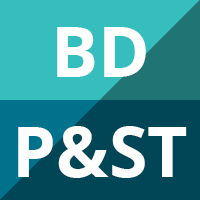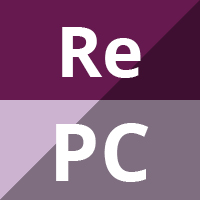
Mechanical traction for neck pain with or without radiculopathy
Abstract Background Neck pain is a frequently reported complaint of the musculoskeletal system which can be disabling and costly to society. Mechanical traction is often used as an adjunct therapy in outpatient rehabilitation. Objectives To assess the effects of mechanical traction for neck disorders. Search methods A research librarian searched computerized bibliographic databases without language […]

Pharmacological interventions for spasticity following spinal cord injury
Abstract Background Spasticity is a major health problem for patients with a spinal cord injury (SCI). It limits their mobility and affects their independence in activities of daily living (ADL) and work. Spasticity may also cause pain, loss of range of motion, contractures, sleep disorders and impair ambulation in patients with an incomplete lesion. The […]

Low level laser therapy for nonspecific low-back pain
Abstract Background Low-back pain (LBP) is a major health problem and a major cause of medical expenses and disablement. Low level laser therapy (LLLT) can be used to treat musculoskeletal disorders such as back pain. Objectives To assess the effects of LLLT in patients with non-specific LBP. Search methods We searched CENTRAL (The Cochrane Library […]

Therapy-based rehabilitation services for patients living at home more than one year after stroke
Abstract Background Current practice of rehabilitation intervention mainly concentrates on the first six months of stroke. At present, there is no agreed consensus about the benefits of such a service more than one year after stroke. Objectives To ascertain whether therapy-based rehabilitation services can influence outcome one year or more after stroke. Search methods We […]

Therapeutic ultrasound for pressure ulcers
Abstract Background Pressure ulcers have been recorded as occurring in 5 to 32% of patients admitted to a UK District General Hospital (the precise rate depends on case-mix) and 4 to 7% in the community. They represent a major burden of sickness and reduced quality of life for patients and their carers, and are costly […]

Interventions for motor apraxia following stroke
Abstract Background Apraxia is a cognitive disorder that can occur after stroke. It prevents a person from carrying out a learned movement. Various interventions are used to treat apraxia but evidence of their benefit has been lacking. Objectives To determine which therapeutic interventions targeted at motor apraxia reduce disability. Search methods We searched the Cochrane […]

Exercise for treating fibromyalgia syndrome
Abstract Background Fibromyalgia (FM) is a syndrome expressed by chronic widespread body pain which leads to reduced physical function and frequent use of health care services. Exercise training is commonly recommended as a treatment. This is an update of a review published in Issue 2, 2002. Objectives The primary objective of this systematic review was […]

Occupational therapy for patients with Parkinson’s disease
Abstract Background Despite drug and surgical therapies for Parkinson’s disease, patients develop progressive disability. It has both motor and non-motor symptomatology, and their interaction with their environment can be very complex. The role of the occupational therapist is to support the patient and help them maintain their usual level of self-care, work and leisure activities […]

Multidisciplinary rehabilitation for adults with multiple sclerosis
Abstract Background Multidisciplinary (MD) rehabilitation is an important component of symptomatic and supportive treatment for Multiple Sclerosis (MS), but evidence base for its effectiveness is yet to be established. Objectives To assess the effectiveness of organized MD rehabilitation in adults with MS. To explore rehabilitation approaches that are effective in different settings and the outcomes […]

EMG biofeedback for the recovery of motor function after stroke
Abstract Background Electromyographic biofeedback (EMG-BFB) is a technique that is believed to have additional benefit when used with standard physiotherapy for the recovery of motor function in stroke patients. However, evidence from individual trials and previous systematic reviews has been inconclusive. Objectives To assess the effects of EMG-BFB for motor function recovery following stroke. Search […]

